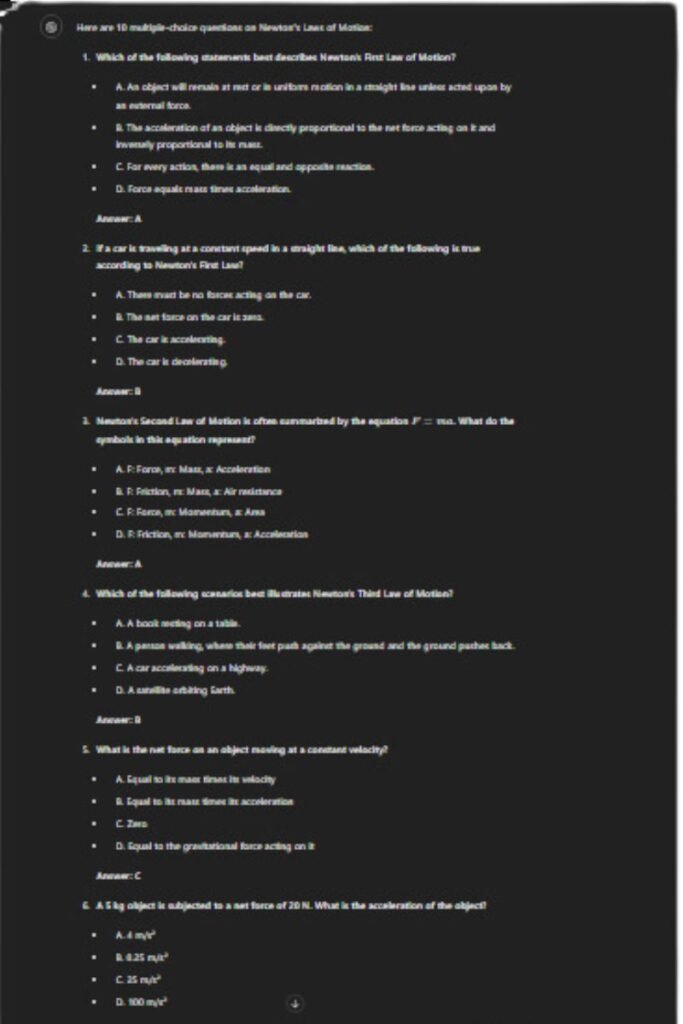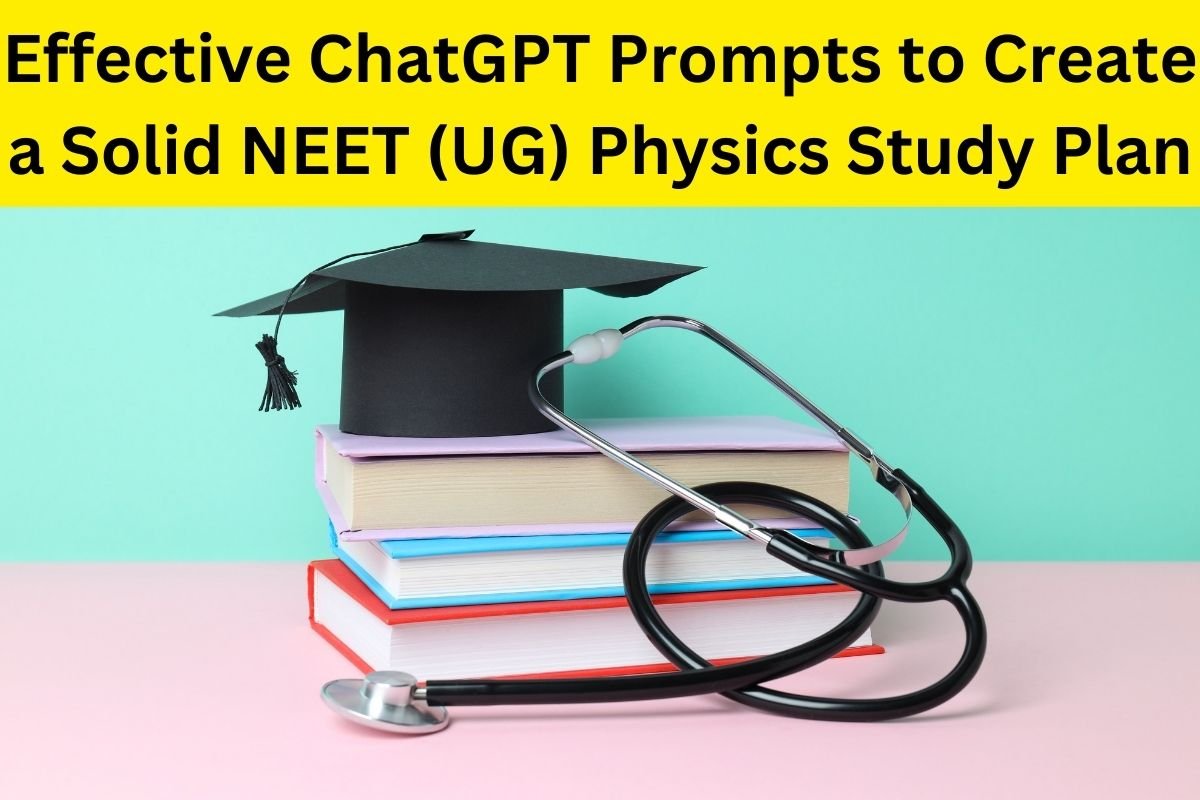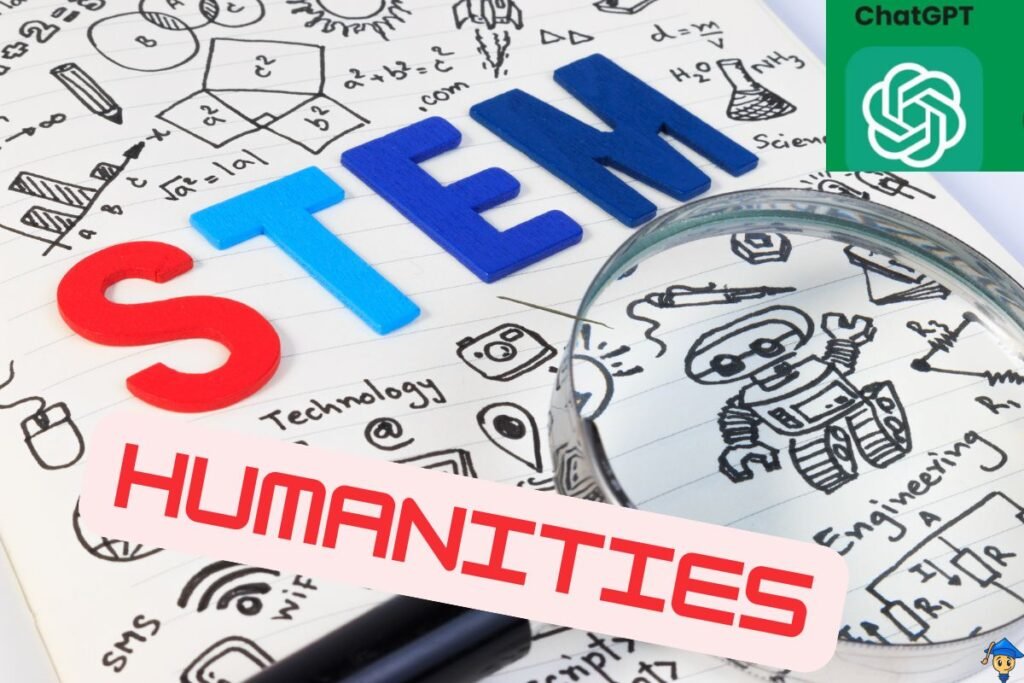Introduction
A structured study plan is essential for success in the NEET (UG) Physics examination. Aspiring medical students face a rigorous curriculum, and having a well-organized approach can significantly enhance their preparation efficiency.
A strategic study plan not only ensures comprehensive coverage of the syllabus but also aids in time management, enabling students to dedicate appropriate time to each topic based on their strengths and weaknesses.
In this context, ChatGPT emerges as a valuable tool for students. By leveraging advanced AI capabilities, ChatGPT can assist in creating an effective NEET (UG) Physics study plan tailored to individual needs.
The use of specific prompts can guide students through the process, offering a personalized and adaptive study regimen that can dynamically adjust based on progress and performance.
Benefits of Using Prompts with ChatGPT
Using prompts with ChatGPT provides several benefits.
Firstly, it allows for the generation of a detailed and structured plan that can break down complex topics into manageable segments.
Secondly, ChatGPT can offer insights and tips on difficult concepts, helping students to grasp challenging material more effectively.
Thirdly, the interactive nature of ChatGPT ensures that students can seek clarification and additional information as needed, promoting a deeper understanding of the subject matter.
This blog post will detail how to construct a NEET (UG) Physics study plan step-by-step using effective ChatGPT prompts.
Each subsequent section will cover specific aspects of the study plan, from identifying key topics and setting achievable goals to integrating revision strategies and practice tests.
By the end of this guide, students will be equipped with the knowledge and tools necessary to maximize their preparation and boost their confidence as they approach the NEET (UG) Physics examination.
Let’s dive right in!
Understanding the Syllabus
Thoroughly understanding the NEET (UG) Physics syllabus is a crucial first step in preparing an effective study plan. A well-structured syllabus offers a roadmap that can guide your study sessions, ensuring that you cover all essential topics and subtopics systematically.
This comprehensive understanding helps in setting clear priorities and allocating time efficiently, which is vital for mastering the subject.
Using ChatGPT prompts to break down the syllabus into manageable sections is an effective strategy. You can begin by asking ChatGPT to provide an overview of the NEET (UG) Physics syllabus.
For example, a prompt like
“List the main topics covered in the NEET (UG) Physics syllabus”
can help you get a broad understanding of what to expect.
Once you have the main topics, you can delve deeper into each one by using prompts such as
“What are the subtopics under Mechanics in the NEET (UG) Physics syllabus?”
Identifying key topics and subtopics is another critical aspect of understanding the syllabus.
Prompts like
“Highlight the most important topics in the NEET (UG) Physics syllabus”
can be beneficial.
This approach allows you to focus on high-yield areas that are frequently tested, ensuring that your study time is spent effectively.
Additionally, you can use prompts such as
“What are the key concepts to understand in Current Electricity?”
to further narrow down the essential areas within each topic.
Setting priorities based on the syllabus content is crucial for an organized study plan.
By understanding the weightage of different topics, you can allocate more time to areas that carry more marks.
Prompts like
“Which topics have the highest weightage in the NEET (UG) Physics exam?”
can provide valuable insights into where to focus your efforts.
You can add a year like NEET(UG)-2025 in each prompt for the latest output.
This method ensures that you are not only covering the syllabus comprehensively but also doing so in a manner that maximizes your chances of scoring well.
Now, time to create a solid study schedule.
Creating a Study Schedule
Developing a well-structured study schedule is crucial for effective preparation for NEET (UG) Physics. A meticulous plan ensures that you cover all topics comprehensively while maintaining a balance between study and rest.
The first step is to identify all the topics that need to be covered. Once identified, the next step is to allocate specific time slots for each topic based on their difficulty level and your proficiency.
ChatGPT can be an invaluable tool in this process. By leveraging well-crafted prompts, you can receive tailored advice on how to distribute your study time efficiently.
For instance, you might use a prompt like,
“ChatGPT, help me create a weekly study schedule for NEET Physics, allocating more time to difficult topics like Mechanics and less time to easier topics like Kinematics.”
The above prompt ensures that your study time is proportionately distributed based on topic complexity.
Balancing study with breaks is essential to prevent burnout. A good practice is to follow the Pomodoro Technique, which involves studying for 25 minutes followed by a 5-minute break.
You can ask ChatGPT,
“Suggest a study schedule for NEET Physics using the Pomodoro Technique, including break times.”
This helps you maintain focus and rejuvenate your mind periodically.
In addition to daily study schedules, setting short-term and long-term study goals is crucial. Short-term goals might include completing a specific chapter within a week, while long-term goals could be mastering all topics by the end of three months.
Use prompts like,
“ChatGPT, help me set achievable short-term and long-term goals for NEET Physics preparation.”
This ensures you have a clear roadmap and milestones to track your progress.
Ultimately, a well-structured study schedule, complemented by strategic use of breaks and goal-setting, can significantly enhance your NEET Physics preparation.
By utilizing ChatGPT prompts effectively, you can create a balanced and comprehensive study plan tailored to your needs.
Identifying Weak Areas
In preparing for the NEET (UG) Physics examination, identifying and focusing on weak areas is crucial for building a robust study plan.
A comprehensive understanding of one’s strengths and weaknesses allows for more effective and efficient preparation. To begin this process, self-assessment is essential. Utilizing ChatGPT can significantly streamline this by providing targeted prompts that help pinpoint specific topics requiring further attention.
For instance, you can start with a prompt like,
“ChatGPT, list common difficult topics in NEET (UG) Physics syllabus,”
which can help you identify areas generally considered challenging.
Following this, you might ask,
“ChatGPT, create a self-assessment quiz for [specific topic],”
to determine your proficiency in that area.
Such quizzes can highlight your understanding and reveal gaps in knowledge that need addressing.
Once weak areas are identified, ChatGPT can assist in crafting a targeted study plan. You could use prompts such as,
“ChatGPT, generate a two-week study plan focusing on [weak topic],” or “ChatGPT, provide a list of resources and practice problems for [weak topic].”
These tailored plans ensure that you spend adequate time and resources on improving your understanding of the most challenging subjects.
Regular self-evaluation plays a pivotal role in this continuous improvement process. Periodically revisiting these self-assessment quizzes and updating your study plan based on new findings helps maintain focus on evolving weak areas.
A prompt like,
“ChatGPT, schedule weekly self-assessment quizzes for [specific topics],”
can keep you on track and ensure consistent progress.
In conclusion, identifying weak areas and focusing on them through targeted study plans and regular self-evaluation is vital for effective NEET (UG) Physics preparation.
ChatGPT serves as a valuable tool in this endeavour, providing customized prompts and resources to support your study efforts.
Practice and Revision
Consistent practice and regular revision are pivotal to mastering NEET (UG) Physics. Without these elements, retaining complex concepts and applying them effectively in exams can become challenging.
One of the most effective ways to ensure regular practice is by leveraging ChatGPT to generate targeted practice questions.
For instance, a prompt like
“Create 10 practice mcq questions on Newton’s Laws of Motion”
can yield a set of questions that students can use for daily practice.
See the output:

Additionally, ChatGPT can aid in designing a comprehensive revision schedule.
A prompt such as
“Generate a weekly revision plan for NEET Physics”
can help structure the review process, ensuring that all crucial topics are revisited periodically.
This structured approach ensures that students can retain information better and identify areas that require more focus.
Moreover, the AI’s capabilities extend to crafting mock tests and quizzes, essential tools for self-assessment.
By using prompts like
“Create a mock test covering the topics Kinematics and Optics as per NEET(UG) level.”
students can simulate exam conditions, helping to build their confidence and time management skills.
These mock tests can be customized to focus on weak areas, making the practice more effective.
Learn Mastering NEET(UG): A Ultimate Guide.Tracking progress is another critical aspect of a solid study plan. ChatGPT can assist in this by generating progress tracking sheets or even by setting reminders for upcoming revisions and tests.
A prompt such as
“Create a progress tracking sheet for my NEET Physics study plan”
can provide a visual representation of the student’s journey, highlighting both achievements and areas needing improvement.
Adjusting the study plan based on progress is equally important. The flexibility provided by ChatGPT allows for real-time modifications.
For example, a prompt like
“Adjust my study plan based on my recent mock test scores”
can help tailor the preparation strategy to optimize performance, ensuring that the student stays on track to meet their goals.
Utilizing Resources
Preparing for the NEET (UG) Physics exam demands an effective utilization of diverse resources to ensure a comprehensive understanding of the subject.
One of the primary resources is NCERT textbooks, which provide structured content and detailed explanations.
Standard textbooks like “Concepts of Physics” by H.C. Verma and “Fundamentals of Physics” by Halliday, Resnick, and Walker are highly recommended.
To make the most out of these resources, students can ask ChatGPT for prompts such as,
“Can you summarize Chapter 5 of ‘Concepts of Physics’ by H.C. Verma?” or “What are the key concepts in ‘Fundamentals of Physics’ Chapter 10?”
In the case of NEET(UG) preparation, a textbook by NCERT is more than sufficient. Don’t go anywhere.
You can ask ChaGPT for prompts like this
“What are the key concepts in NCERT physics class 12 textbook Chapter 3?”
Disclaimer: ChatGPT can make mistakes. Check important info with the help of your textbook.
Online resources also play a crucial role in NEET (UG) Physics preparation.
Websites like Khan Academy, Coursera, and edX offer free and paid courses that cover various topics in Physics.
Video lectures and interactive modules can help in visualizing complex concepts. Students can use ChatGPT to identify beneficial online courses by asking,
“What are some good online courses for NEET Physics preparation?” or “Which YouTube channels offer quality NEET Physics tutorials?”
Study groups and discussion forums are equally valuable. Platforms like Reddit, Quora, and dedicated NEET preparation forums provide a space for students to ask questions, share resources, and discuss difficult topics with peers.
ChatGPT can assist in finding active study groups by prompting,
“Where can I find online study groups for NEET Physics?” or “Can you suggest some forums for discussing NEET Physics problems?”
Moreover, ChatGPT can be instrumental in finding additional learning materials and explanations. Whether it’s recommending practice problems, suggesting revision strategies, or providing explanations for tricky concepts, ChatGPT can be a versatile tool.
For instance, students might ask,
“Can you provide some practice questions on electromagnetism?” or “How do I solve problems related to rotational dynamics?”
It’s important to diversify study resources, as relying solely on one type of material might limit the breadth of understanding. By combining textbooks, online resources, and study groups, students can create a well-rounded study plan that addresses various learning styles and difficulties, thereby enhancing their overall preparation for the NEET (UG) Physics exam.
Learn How to Use OpenAI's ChatGPT: Students' GuideConclusion
In conclusion, creating a well-structured Physics study plan for NEET (UG) is crucial for achieving success in this competitive exam. Throughout this article, we have explored various effective ChatGPT prompts that can assist students in crafting a comprehensive and personalized study plan. The key points discussed include understanding the syllabus, identifying strengths and weaknesses, planning effective study schedules, and employing strategic revision techniques.
Using ChatGPT to generate tailored study prompts provides students with a dynamic and interactive approach to learning. It encourages active engagement, helps identify gaps in knowledge, and fosters a deep understanding of complex Physics concepts. By integrating these AI-driven methods into your study routine, you can create a more efficient and effective preparation strategy.
Remember, the road to success in NEET (UG) requires more than just a solid study plan—it demands commitment, consistency, and perseverance. Embrace these AI tools to enhance your study efforts, but also stay dedicated to your goals. With a well-organized plan and a steadfast commitment, you can navigate the challenges of NEET (UG) Physics and achieve the results you aspire to.





